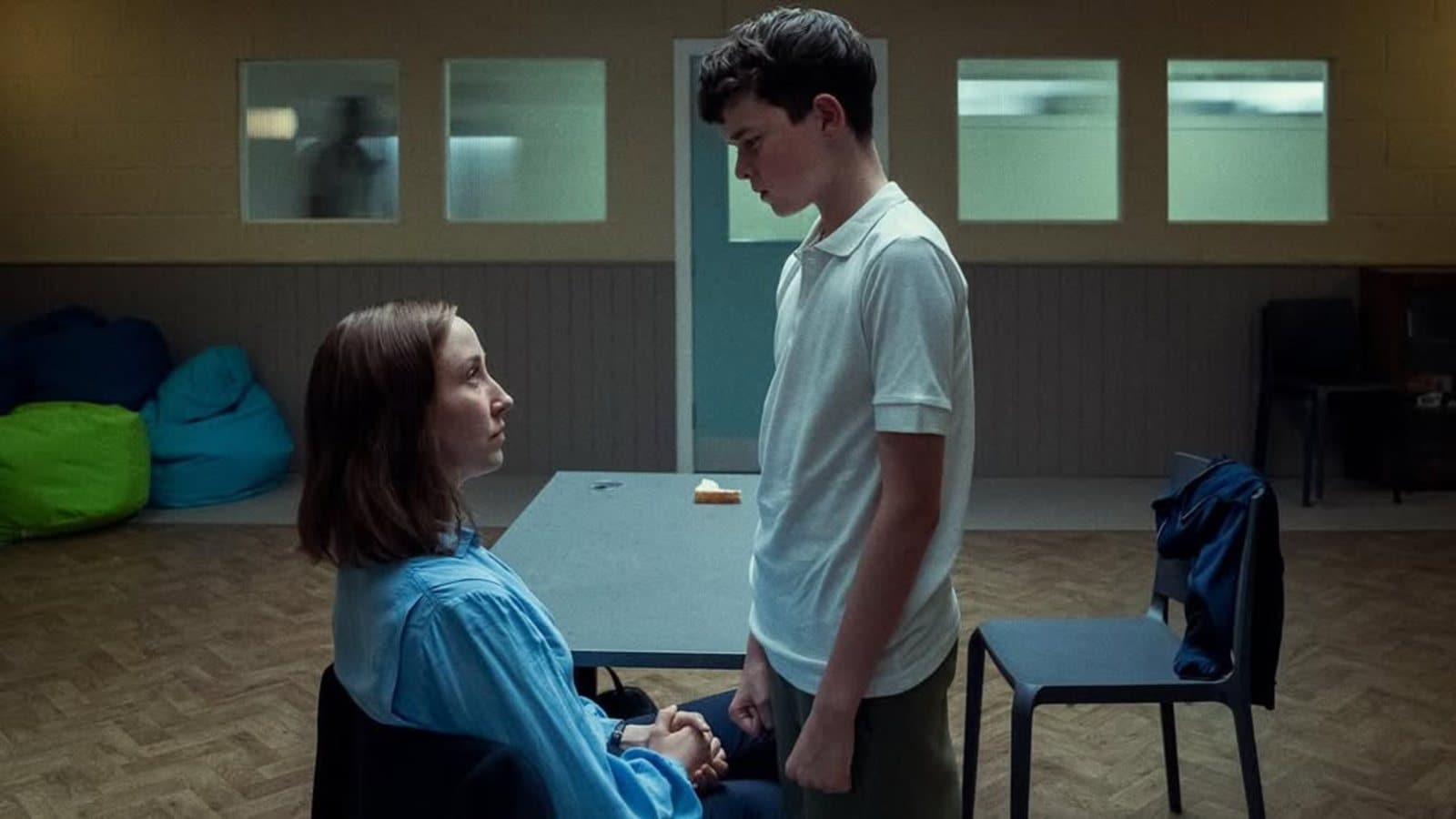Popular Netflix series “Adolescence” has sparked discussion about the effects of social media on teens and their mental health. Know what parents can do to protect their children.
The Netflix series “Adolescence” goes beyond the investigation of the murder of a teen girl by her classmate Jamie Miller, played by Owen Cooper. Yes, it shows the impact of the arrest on the boy’s family, and the way the criminal justice system handles juvenile cases. The British psychological crime drama also explores social media pressure on teenagers and how it can affect their mental health. The hit series has opened up a conversation on the effects of social media on teens. Read on to know how digital platforms can negatively impact a child’s mental health and what parents can do about it.
What is ‘Adolescence’ about?
The four-part web series begins with a few cops, armed with guns, bursting into the bedroom of 13-year-old Jamie. As he pees his pants in fear, the police officers arrest him for allegedly stabbing his female classmate (Katie) to death. While he denies murdering his classmate, Detective Inspector Bascombe (Ashley Walters) shows the boy footage of the kid stabbing the girl to death.

As part of the investigation, Bascombe visits Jamie’s school to get information about the murder weapon. They also go through several social media posts that Jamie and Katie exchanged to figure out whether they were friends. While the cop thinks the teenagers were friends, Bascombe’s son Adam, who also attends the same school, hints that Jamie was bullied by Katie on Instagram.
Later, it is revealed that Jamie had asked out Katie. But she had rejected his advances and then used emojis to call him an “incel,” or involuntary celibate. The series suggests that the 13-year-old, who called himself “ugly,” killed Katie because she hurt his feelings by attacking him on social media. It highlights the negative effects of social media on teens, especially boys.
Effects of social media on teens
“Adolescence” puts the spotlight on the harmful effects of social media on teens. Here are some ways it can impact your child:
1. Cyberbullying
“It is bullying that occurs through electronic devices, and has become a pervasive issue among adolescents nowadays,” says psychiatrist Dr Shaunak Ajinkya. The prevalence of childhood and adolescent victimisation from cyberbullying across the globe ranges from 13.99 to 57.5 percent, as per a study published in Frontiers.
“It is often subtle, coded, and masked behind emojis, slang, or sarcasm that may seem harmless to people, especially adults who are not familiar with the meanings,” says psychotherapist and life coach Dr Chandni Tugnait.
As seen in “Adolescence,” what appears to be friendly interaction on Instagram may actually hide ridicule, or emotional harm. The mental health consequences for adolescents who experience cyberbullying are many. “They may experience depression, anxiety, and have suicidal thoughts,” says Dr Ajinkya. Cyberbullying is also associated with lowered self-esteem and feelings of helplessness.
2. Emotional disconnection and loneliness
One of the effects of social media on teens is that too much online interaction can reduce real-life connection. “Teenagers may find it hard to express emotions face-to-face or feel genuinely heard,” says Dr Tugnait. Despite being constantly “connected,” many teenagers may feel emotionally isolated and lonely.
3. Distorted body image
Social media platforms give a significant emphasis on physical appearance, often promoting beauty standards that are not realistic. Teenagers are frequently exposed to filtered and edited images that create false illusions of perfection. “This exposure fuels social comparison focused on appearance, often leading to body dissatisfaction, or body image issues among teenagers,” says Dr Ajinkya. This is one of the negative effects of social media on teens.
4. Sleep disruption
One of the effects of social media on teens is that it can affect their sleep quality. Adequate sleep is essential for the healthy development of teenagers. However, social media usage may contribute to sleep disturbances in this age group. “One key factor is the exposure to blue light emitted from gadgets, which can suppress the production of melatonin, a hormone needed for regulating sleep,” says the expert.
5. Anxiety and depression
Excessive social media use may be connected to anxiety and depression. Teenagers often engage in trolling on the digital platforms. They focus on body shaming, individual abilities, language, and lifestyle, which might cause anxiety, depressive symptoms, and stress, as per research published in Cureus.
Effects of social media on teens: Tips for parents to protect kids
The negative effects of social media on teens can not be ignored. Here’s what parents can do:
1. Create open conversations about online life
The effects of social media on teens may not always be visible, but they are more likely to share when they don’t fear judgment or overreaction. “As parents, you can stay connected by showing genuine curiosity, encouraging honesty, and teaching children how to name and report online harm,” says Dr Tugnait.
2. Encourage face-to-face contact and offline activities
Help your children maintain a balance between their online and offline lives by encouraging them to have real-world interactions with their friends and participation in multiple activities. “These activities can boost self-esteem and provide positive social connections outside of social media,” says Dr Ajinkya.

3. Monitor your child’s social media accounts
As parents, you should monitor your child’s social media use closely, especially when they are aged around 10, or 14, according to the American Psychological Association. As they mature, you can adjust the level of monitoring based on their responsibility and maturity.
4. Turn on and manage privacy settings
Help your children understand and utilise the privacy settings on their social media accounts. Ensure these settings are adjusted to limit the sharing of personal information with people, particularly strangers. Teach them not to share full names, addresses, phone numbers, passwords, or financial information online.
5. Set boundaries without controlling
Rather than enforcing rigid rules, co-create boundaries with your children. Discuss screen time limits, and appropriate platforms with them. “Involving them in the decision-making process helps them take ownership and makes them more likely to follow those boundaries willingly,” says Dr Tugnait.
6. Be a role model for healthy social media habits
Show your children a balanced approach to technology by being mindful of your own social media use. “Put your phone away when you are enjoying family time, and demonstrate healthy boundaries to limit screen time,” says Dr Ajinkya.
The series “Adolescence” has started a discussion on the effects of social media on teens. It may affect their self-esteem and even lead to anxiety, or depression. If you are a parent, monitor and set boundaries to protect your children.
Related FAQs
What is an example of cyberbullying for kids?
Ella, a 13-year-old student, is part of a group chat with classmates on a messaging app. One day, a few children in the group start making fun of her photo posted on social media. They type hurtful messages like “You look so fat and weird in that picture”, and “Why did you even choose to post that? Everyone’s laughing at you.” They also send laughing emojis, share the photo and encourage other classmates to join in making fun. Ella feels hurt, embarrassed, and excluded. It being done in front of others, makes it even more humiliating!
What are the positive effects of social media on children?
Social media platforms offer children and adolescents unique opportunities to connect and maintain relationships with friends and family. The platforms provide various avenues for interaction, from direct messaging and video calls to sharing updates and participating in group chats, allowing children to stay connected with their social networks in real-time. This can be particularly beneficial for children with geographically dispersed families or those who have moved away from established friendship groups. The platforms host numerous communities centered around specific hobbies, interests, or identities, allowing children to find others who share their passions, regardless of geographical limitations.
#Effects #social #media #teens #Impact #tips #parents




